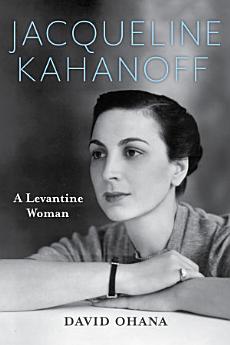Jacqueline Kahanoff: A Levantine Woman
About this ebook
At the age of twenty-four, Kahanoff immigrated to the United States. Her stories, essays, and short autobiographical novel attest to her penchant to cross boundaries, generations, social classes, sexes, and Western and Eastern constructs. After immigrating to Israel in the early 1950s, she critically addressed the country's "provinciality" and "ethnic nationalism" as seen through her conception of a transnational Levantine culture. Through many writings, Kahanoff set forth her distinctive vision of Israel as a Mediterranean country with a broad, multicultural Levantine identity.
Drawing on an extensive array of sources, ranging from interviews with Jacqueline Kahanoff's acquaintances and contemporaries to unpublished writings, David Ohana explores her fascinating life and intellectual journey from Cairo to Tel Aviv. The encompassing vision of a Levantine Israel made Kahanoff the initiator of a different cultural possibility, more extensive than that offered in her time, and also, perhaps, than is offered today.
About the author
David Ohana is Professor of Modern European History at the Ben-Gurion Institute for the Study of Israel and Zionism at Ben-Gurion University of the Negev, Israel. His books include Nietzsche and Jewish Political Theology, The Intellectual Origins of Modernit, and The Nihilist Order: The Intellectual Roots of Totalitarianism.







